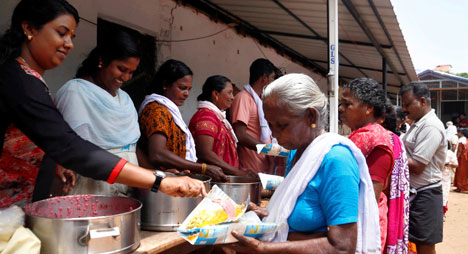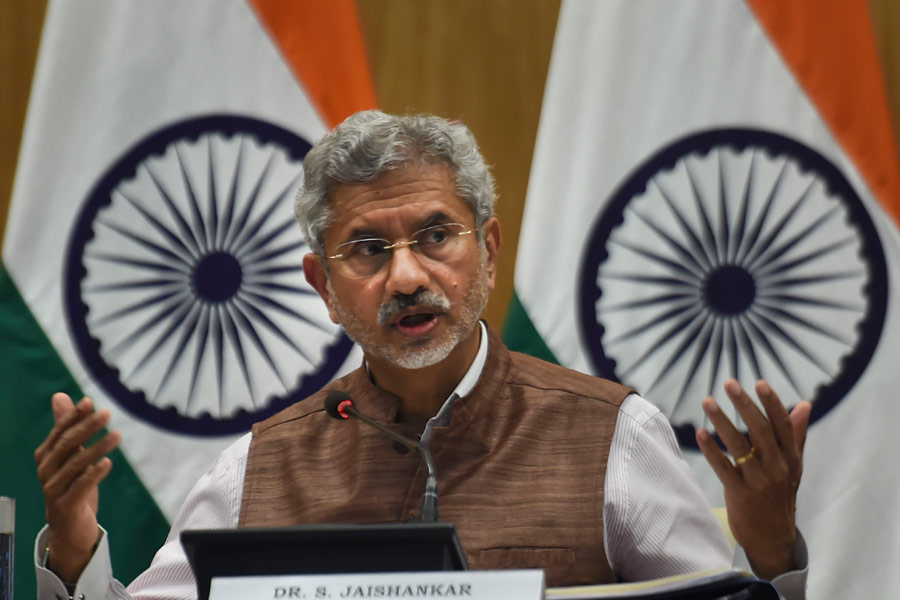
Bangalore: In the middle of the aid politics buffeting Kerala, the tip of an economic factor has emerged, underscoring why the small state needs every penny it can marshal.
Kerala's cash crops which give its farm economy a distinct flavour are staring at a long haul to recovery after floods and landslides wiped out large tracts of cropland, economists have said on the basis of preliminary assessments.
"The farm sector alone would require at least Rs 20,000 crore to revive it to the old shape," economist Mary George, former head of the state government's public expenditure review committee, told The Telegraph on Sunday. "In 11 districts, only a small portion of the crop is standing. It would be difficult to do anything without adequate funds from the Centre and international agencies."
She added: "What we have now is just a rough idea about the losses. But my feeling is that Kerala will need at least five years to revive fully - if adequate funds are made available and are used properly."
George estimated that Kerala would need "at least Rs 50,000 crore to rebuild the state and its farm sector".
In a farm economy driven mainly by rice and plantation crops, the loss has been heaviest for plantation crops like rubber and pepper.
"Farmers can harvest rice or vegetables quite fast but plantation crops need time. Pepper will take four years of minimal harvest, rubber about seven years, and coconut up to 10 years," she said.
She added that this meant the farmers would need long-term support, such as interest-free loans.
Livestock are another key source of income in the villages. "We don't even know how many heads of cattle and poultry have perished," George said, urging the government to carry out area-specific surveys to assess the loss and damage in each village or town.
She said the government's reconstruction plan must also include ways of checking theft and embezzlement: "Corruption is not alien to our state; so the government needs to keep tabs on where the money is going."
K.J. Joseph, an economist at the Centre for Development Studies in Thiruvananthapuram, said the landslides and the floods had come as a double whammy.
"We need a special package for the farm sector alone, and the respective commodity boards (such as the Rubber Board) must take some responsibility as the state government will be busy rehabilitating people and rebuilding infrastructure," Joseph said.
He said that boards like the Coconut Development Board, Coffee Board and Spices Board were all stakeholders in Kerala's success story as a spice coast.
"When our farmers are in trouble, it's the joint responsibility of the commodity boards to play an active role by formulating a revival plan," he said.
R.S. Deshpande, economist and former director of the Institute of Social and Economic Change in Bangalore, said the Kerala government needed to realise that the calamity would impact its growth. "Floods always reset the development clock to zero. So all stakeholders need to keep that in mind while formulating an action plan before deciding on compensations," he said.
An advocate of direct benefit transfer, Deshpande said the compensation should be disbursed quickly and sent to bank accounts.
"There will be delay and possible corruption if the money is routed through revenue officials, and that will end up frustrating the beneficiaries, who are in dire need of help," he said.










